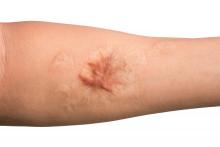Global gamete warming
Apparently, increasing deadly wildfires, hurricanes, and global famine aren’t enough. Turns out, climate change has found yet another way to harm its arch nemeses, a.k.a. every single species on the planet. A study originally published in Nature Communications found that rising temperatures also have a significant effect on male (but not female) fertility. Men: so fragile.
Testing fertility in flour beetles, researchers concluded that successive heat waves of 5-7° C above normal for 5 days reduced sperm competitiveness and practically sterilized the males. Inseminated sperm inside females were also not spared the devastating effects of the heat-wave conditions. And, as the icing on the cake, reduced fertility persisted amongst later generations.
Unless we can figure out how robot sperm can deliver DNA, we’re in trouble.
Pneumonia throwdown
Previously, we pitted Clostridium difficile against cockroaches in a battle of toughness. In this week’s edition of Bacteria vs. the World, bacterial pneumonia goes up against another worthy adversary, viral pneumonia.
“We’ve always known pneumonia was a risk factor for a major adverse cardiac event,” said J. Brent Muhlestein, MD, of Intermountain Medical Center in Salt Lake City. “What we didn’t know was which type of pneumonia was more dangerous.”
To find out, he and his associates followed almost 4,800 patients hospitalized with pneumonia and tracked nonfatal heart attacks, stroke, heart failure, or death. Data they presented at the American Heart Association scientific sessions in Chicago show that 34% of patients with bacterial pneumonia had a major cardiovascular event within 90 days, compared with 26% of those diagnosed with viral pneumonia. It is likely “that bacterial pneumonia causes greater inflammation of the arteries compared to viral pneumonia,” Dr. Muhlestein said.
So the bacteria stay undefeated, and somewhere Chuck Norris, who will never have a heart attack – even a heart isn’t foolish enough to attack Chuck Norris – is smiling.
Ch-ch-check it out
Drop the beat! Researchers at the University of California were interested in examining beatboxing processes to explore how the human mind works.
These crazy scientists threw some beatboxers into an MRI for an exclusive performance and studied the movements of their mouth and tongue. Researchers hypothesized that beatboxers base their sounds on already-known speech. But they discovered that these talented virtuosos are creating a whole new language.
“They’re coming up with ways to create these really complex acrobatic sounds by taking approaches drawn from different parts of the mouth that they don’t use in any language, and nobody uses for any language,” according to the lead researcher.
Does that mean beatboxing will be taught in schools as a foreign language? Perhaps. It might be more useful than learning Latin.
Keloid castration
Keloids – those pesky overgrowths of scar tissue – can be mighty hard to treat.
“Virtually every patient says, ‘I want this cut off – I want it gone,’ ” dermatologist Hilary E. Baldwin, MD, said in a presentation at the recent Las Vegas Dermatology Seminar. She responds to patients with reality checks about what’s actually possible in keloid treatment.
But sometimes, they just want to adjust the appearance of their keloids. Like the man who complained that “my keloid looks like my junk.” Dr. Baldwin took a look and had to agree – the keloid on his deltoid was the spitting image of male genitalia. She treated the keloid with the equivalent of castration (removing its “testicles” via surgery) and circumcision of sorts (flattening its “glans penis” via corticosteroids).
“It didn’t look pretty,” she said, as at least one male member of the audience squirmed, “but it no longer looked offensive to him.”





